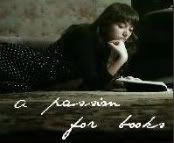Interview:
1. I write because...
I can’t stop.
2. What is your advice for someone just starting out in their writing career?
Read widely and to excess.
3. Name three things on your desk right now.
Scribbled-on post-it notes of various colors, a miniature Sigmund Freud (don’t ask) and a very large bottle of seltzer.
4. Do you listen to music when you write?
Mostly, no. Sometimes during revising, but lyrics can really distract me.
5. If I were your favorite cookie, I would be a...
Macaroon (and now I’m hungry).
6. Heels or flats?
If I’m honest, flats. (In my dreams, always heels.)
7. Name the best place you've traveled to.
Oxford, Mississippi. If you’ve been there, you know why.
8. What are you currently working on?
Revisions for my next novel, You Will Know Me, about a family with a child prodigy. And something bad happens.
9. Plotter or pantster?
A little of both.
10. What is your typical day like?
Coffee, stare at computer screen, poke out a few words, check email, poke out a few more words. More coffee. Repeat. (Not a pretty picture, is it?)
Loosely inspired by the nationally reported story of the purported "mass hysteria" outbreak in Le Roy, NY in 2012, THE FEVER is a haunting, thought-provoking page-turner that examines the powers of desire, guilt, secrets, and fear. It's at once entrancing and disturbing, and readers will not be able to put it down until the very last page.
Megan Abbott wrote one of the most memorable and beloved books of 2012. Called "deft, intelligent, and enthralling" by Kate Atkinson and "spectacular" by Chelsea Cain in the New York Times Book Review, her novel Dare Me--a chilling story of backstabbing cheerleaders and adolescent rivalries--was nominated for Anthony and Steel Dagger awards, was Gillian Flynn's Holiday Book Picks selection for NBC's Today show, and made many Best Books of 2012 lists.
EARLY PRAISE FOR THE FEVER:
"An unforgettable inquiry into the emotional lives of young people... It's also a powerful portrait of community, with interesting echoes of The Crucible...Abbott may be on her way to becoming a major writer."--Booklist, Starred Review
"Thrilling...a gripping story fueled by razor-sharp treachery, jealousy, hormones, and the insecurities of teenage girls."--Publishers Weekly
"The book to beat... in the "Is it the next 'Gone Girl'?" sweepstakes."--Janet Maslin, New York Times
"The lives of teenage girls are dangerous, beautiful things in Abbott's stunning novel... Abbott expertly ratchet[s] up the suspense...nothing should be taken at fact value." --Kirkus, Starred Review
"THE FEVER is deliciously, page-turningly 'no, no, leave me alone, I'm almost done!' Abbott nails both the reality of being a teenage girl and the hyper-reality of memory." --BookRiot
"No one understands the social dynamics of teenage girls better than Megan Abbott...settling into THE FEVER, one realizes that Abbott is setting a rhythm, one that's measured and paced with the brilliance of one of the best living mystery writers." --Grantland
ABOUT THE BOOK:
The panic unleashed by a mysterious contagion threatens the bonds of family and community in a seemingly idyllic suburban community.
In the idyllic community of Dryden, Tom Nash is a popular high school teacher and the father of two teens: Eli, a hockey star and girl magnet, and Deenie, a diligent student with a close-knit group of friends-who are all horrified one day in class when Deenie's best friend, Lise, is struck by a terrifying, brutal, and unexplained seizure. As Lise clings to life in the hospital, the seizures systematically infect more teenage girls, one by one, sending the entire town into terrified, questioning chaos. Is there a dangerous virus at work? Is it something in the school itself? Are the girls faking it? Who or what is to blame-and who will be next?
As hysteria and contagion swell, a series of tightly held secrets emerges, threatening to unravel friendships, families and the town's fragile idea of security.
Excerpt: Copyright Megan Abbott, courtesy of Little, Brown and Company
Before
The first time, you can’t believe
how much it hurts.”
Deenie’s legs are
shaking, but she tries to hide it, pushing her knees together, her hands hot on
her thighs.
Six other girls are
waiting. A few have done it before, but most are like Deenie.
“I heard you might
want to throw up even,” one says. “I knew a girl who passed out. They had to
stop in the middle.”
“It just kind of
burns,” says another. “You’re sore for a few days. They say by the third time,
you don’t even feel it.”
I’m
next, Deenie
thinks, a few minutes and it’ll be me.
If only she’d gotten
it over with a year ago. But she’d heard about how much it hurt and no one else
had done it yet, at least not anyone she knew.
Now she’s one of the
last ones.
When Lise comes out,
her face puckered, holding on to her stomach, she won’t say a word, just sits
there with her hand over her mouth.
“It’s nothing to be
scared of,” Gabby says, looking at Deenie. “I’m not afraid.”
And she takes
Deenie’s hand and grips it, fingers digging into palm, their clasped hands
pressing down so Deenie’s legs stop shaking, so she feels okay.
“We’re in it
together,” Gabby adds, making Deenie look in her eyes, black and unflinching.
“Right,” Deenie
says, nodding. “How bad can it be?”
The door opens.
“Deenie Nash,” a
voice calls out.
Four minutes later,
her thigh stinging, she’s done. It’s over.
Walking back out,
shoes catching on the carpet, legs heavy as iron, she feels light-headed, a
little drunk.
All the girls look
at her, Gabby’s face grave and expectant.
“It’s nothing,”
Deenie says, grinning. “It’s just . . . nothing.
1
T U E S D A Y
At first, Lise’s
desk chair just seemed to be rocking. Deenie’s eyes were on it, watching the
motion. The rocking of it made her feel a little sick. It reminded her of
something.
She
wondered if Lise was nervous about the quiz.
The
night before, Deenie had prepared a long time, bringing her laptop under her
covers, lying there for hours, staring at equations.
She
wasn’t sure it was studying, exactly, but it made her feel better, her eyes dry
from screen glare, fingers tapping her lower lip. There was an uncomfortable
smell from somewhere in her clothes, musky and foreign. She wanted to shower,
but her dad might hear and wonder.
Two
hours before, she’d been at work, dropping dough balls in a machine and
punching them out into square pans slick with oil. Lise and Gabby had come by
and ordered the fat pizza sticks, even though Deenie warned them not to. Showed
them the plastic tub of melted butter that sat all day by the hot ovens. Showed
them how the oven workers stroked the sticks with the butter from that tub and
how it looked like soap or old cheese.
As they
left, oil-bottomed paper sacks in their hands, she wished she were going with
them, wherever they were going. She was glad to see them together. Gabby and
Lise were Deenie’s best friends but never really seemed easy with just each
other.
By the
ovens, Sean Lurie clocked in late. Wielding his long iron grippers like swords,
he started teasing her. About the fancy-girl arc of her hand when she’d grab a
dough ball, like she was holding a kitten. The way, he said, her tongue stuck
out slightly when she stretched the dough.
“Like my
little sister,” he teased, “with her Play-Doh.”
He was a
senior at Star-of-the-Sea, shaggy black hair, very tall. He never wore his hat,
much less the hairnet, and he had a way of smiling lopsided that made her tie
her apron strings tighter, made her adjust her cap.
She
didn’t even mind all the sweat. The sweat was part of it.
Like her
brother after hockey, his dark hair wet and face sheened over—she’d tease him
about it, but it was a look of aliveness you wanted to be around.
The heat
from the ovens made his skin glow.
How it
happened that two hours later she was in Sean Lurie’s car, and a half hour
after that they were parked on Montrose, deep in Binnorie Woods, she couldn’t
say for sure.
She
always heard you looked different, after.
But only the first time, said Gabby, who’d done it just twice
herself. To make you remember it, I guess. Deenie
had wondered how you could ever forget.
You look in the mirror after, Gabby said, and it’s not even you.
Except
Deenie had never really believed it. It seemed like one of those things they
told you to make you wait forever for something everyone else was doing anyway.
They didn’t want you to be part of the club.
And yet,
looking in the bathroom mirror after she got home, she’d realized Gabby was
right.
It was
partly the eyes—something narrow there, something less bright—but mostly it was
the mouth, which looked tender, bruised, and now forever open.
Her
hands hooked on the sink ledge, her eyes resting on her dad’s aftershave in the
deep green bottle, the same kind he’d used all her life. He’d been on a date
too, she realized.
Then,
remembering: she hadn’t really been on a date.
Now, in class, all these
thoughts thudding around, it was hard to concentrate, and even harder given the
rocking in Lise’s chair, her whole desk vibrating.
“Lise,”
Mrs. Chalmers called out. “You’re bothering everyone else.”
“It’s
happening, it’s happening” came a low snarl from Lise’s delicate pink mouth.
“Uh-uh-uh.”
Her
hands flying up, she grabbed her throat, her body jolting to one side.
Then, in
one swoop—as if one of the football players had taken his meaty forearm and
hurled it—her desk overturned, clattering to the floor.
And with
it Lise. Her head twisting, slamming into the tiles, her bright red face turned
up, mouth teeming with froth.
“Lise,”
sighed Mrs. Chalmers, too far in front to see. “What is your problem?”
* * *
Standing at his locker,
late for class, Eli Nash looked at the text for a long time, and at the photo
that had come with it. A girl’s bare midriff.
Eli, for you xxxx!
He
didn’t recognize the number.
It
wasn’t the first time he’d gotten one of these, but they always surprised him.
He tried to imagine what she was thinking, this faceless girl. Purple nails
touching the tops of her panties, purple too, with large white polka dots.
He had
no idea who it was.
Did she
want him to text her back, invite her over? To sneak her into his bedroom and
nudge her shaky, pliant legs apart until he was through?
A few
times he’d done just that. Told them to come by, smuggled them to his room. The
last one, a sophomore everyone called Shawty, cried after.
She
admitted to drinking four beers before she came on account of nervousness, and
even still, had she put her legs where she should? Should she have made more
noise? Secretly, he’d wished she’d made less noise. Since then, he could only
ever think about his sister, one wall away. And how he hoped Deenie never did
things like this. With guys like him.
So now,
when he got these texts, he didn’t reply.
Except
sometimes he felt kind of lonely.
The
night before, his friends at a party, he’d stayed home. He imagined maybe a
family night of bad TV and board games moldy from the basement. But Deenie
wasn’t around, and his dad had his own plans.
“Who is
she?” he’d asked, seeing his father wearing his date sweater, the charcoal
V-neck of a serious man.
“A nice
woman, very smart,” he said. “I hope I can keep up.”
“You
will,” Eli said. His dad was the smartest teacher in the school and the
smartest guy Eli knew.
After
one of those times sneaking a girl out of his room, Eli had gotten caught, sort
of. In the upstairs hallway, his dad nearly bumped into her as she hitched her
tank-top strap up her shoulder. He’d looked at Eli and then at the girl and
she’d looked at him and smiled like the prom queen she was.
“Hey,
Mr. Nash,” she cheeped. “Guess what? I got an eighty-five in Chem Two this
year.”
“Great,
Britt,” he said, his eyes not focusing on hers. “I always knew you could do better.
Glad to hear you’re doing me proud.”
After,
Eli shut his door and turned his music as loud as he could and hoped his dad
wouldn’t come talk to him.
He never
did.
* * *
Dryden was the cloudiest
city in the state, the sky white for much of the year and the rest of the time
a kind of molten gray broken up by bright bolts of mysterious sun.
Tom Nash
had lived here for twenty years, had moved with Georgia the summer after they’d
finished their teaching certificates, and she’d gotten a job starting up the district’s
new special-education office.
Like
many long-term transplants, he had the uncomplicated pride of a self-proclaimed
native, but with the renewing wonder a native never has.
In the
deep white empty of February when his students would get that morose look,
their faces slightly green like the moss that lined all their basements, he’d
tell them that Dryden was special. That he had grown up in Yuma, Arizona, the
sunniest city in the United States, and that he’d never really looked up until
he went away to summer camp and realized the sky was there after all and filled
with mystery.
For
Dryden kids, of course, there was no mystery to any of it. They didn’t realize
how much it had shaped them, how it had let them retain, long past childhood
fairy tales, the opportunity to experience forces beyond their understanding.
The way weather tumbled through the town, striking it with hail, lightning,
sudden bursts of both clouds and sun, like no other place Tom had ever been.
Some days, the winter wind moving fast across the lake’s warm waters, the sun
unaccountably piercing everything, students came to school, faces slicked in
ice, looking stunned and radiant. As if saying: I’m sixteen and bored and indifferent to life, but my eyes are
suddenly
open, for a second, to this.
The
first year he and Georgia lived here, Dryden had been this puzzle to them both. Coming home at night, the haze of
the streetlamps, shaking off the damp,
they would look around, their once-copper
skin gleaming white, and marvel over it.
Pregnant
with Eli and her body changing already, giving her this unearthly beauty,
Georgia decided Dryden wasn’t a real place at all but some misty idea of a
town. A suburban Brigadoon, she called it.
Eventually—though
it felt like suddenly to him—something changed.
One
afternoon two years ago, he came home and found her at the dining-room table
drinking scotch from a jam jar.
Living here, she said, is like living at the bottom of an old man’s shoe. Then she
looked at him as if hoping he could say something to make it not feel true.
But he
couldn’t think of a thing to say.
It
wasn’t long after that he found out about the affair, a year along by then, and
that she was pregnant. She miscarried three days later and he took her to the
hospital, the blood slipping down her leg, her hands tight on him.
Now he
saw her maybe four times a year. She’d moved all the way to Merrivale, where
Eli and Deenie spent one weekend a month and a full ten days each summer, after
which they came back tan and blooming and consumed by guilt the moment they saw
him.
In his
middle-of-the-night bad thoughts, he now felt sure he’d never really understood
his wife, or any woman maybe.
Whenever
he thought he understood Deenie, she seemed to change.
Dad, I don’t listen to that kind of music.
Dad, I never go to the mall anymore.
Lately,
even her face looked different, her baby-doll mouth gone. The daddy’s girl who
used to climb his leg, face turned up to his. Who sat in his leather reading
chair for hours, head bent over his own childhood books on Greek mythology,
then Tudor
kings, anything.
“I’m
taking the bus,” she’d said that very morning, halfway out the door, those
spindle legs of hers swiveling in her sneakers.
“I can
drive you,” he’d said. “You’re so early.”
Deenie
hadn’t beaten him to breakfast since she was ten, back when she was trying to
be grown-up and would make him toaster waffles, with extra syrup he’d be
tugging from the roof of his mouth all day.
Eli off
to hockey practice at six a.m., Tom liked these drives alone with Deenie, the
only time he could peek into the murky teen-girl-ness in her head. And get
occasional smiles from her, make bad jokes about her music.
A few
times, after dates like the one he’d had the night before— a substitute teacher
divorced three months who’d spent most of dinner talking about her dying
cat—driving to school with Deenie was the thing that roused him from bed in the
morning.
But not
this morning.
“I have
a test to study for,” she’d said, not even turning her head as she pushed
through the door.
Sometimes,
during those same bleak middle-of-the-nights, he held secret fears he never
said aloud. Demons had come in the dark, come with the famous Dryden fog that
rolled through the town, and taken possession of his lovely, smart, kindhearted
wife. And next they’d come for his daughter too.
ABOUT THE AUTHOR:
Megan Abbott is the Edgar Award-winning author of six previous novels. Her writing has appeared in the New York Times, Salon, the Los Angeles Times Magazine, The Believer, Los Angeles Review of Books, Detroit Noir and Queens Noir among other places. She received her PhD in literature from New York University. She lives in New York and recently served as the John Grisham Writer-in-Residence at the University of Mississippi. Currently, she is working on the screenplay for her novel, Dare Me, soon to be a major motion picture.
THE FEVER BOOK TOUR:
June 17, 7:00pm ET | Book Court | Brooklyn, NY
June 18, 7:00pm ET | WORD with Julia Fiero | Brooklyn, NY
June 20, 7:00pm ET |Brookline Booksmith with Stona Fitch | Brookline, MA
June 22, 3:00pm ET | Nicola's Books | Ann Arbor, MI
June 23, 7:00pm ET | Barnes and Noble | Troy, MI
June 24, 5:00pm ET | Square Books | Oxford, MS
June 25, 6:30pm CT | Murder by the Book | Houston, TX
June 26, 7:00pm CT | Book People | Austin, TX
July 1, 7:00pm MT | Poisoned Pen with Jeff Abbott | Phoenix, AZ




%5B1%5D.jpg)




























































































No comments:
Post a Comment